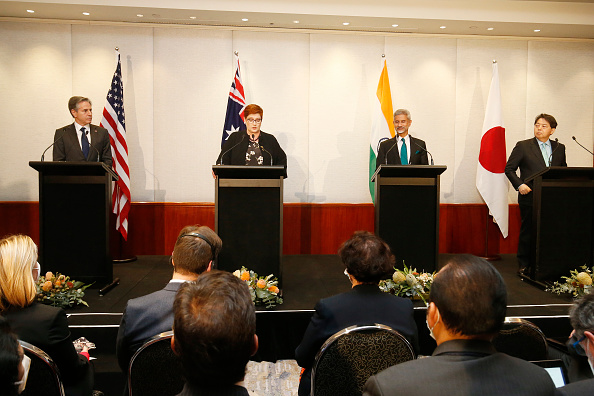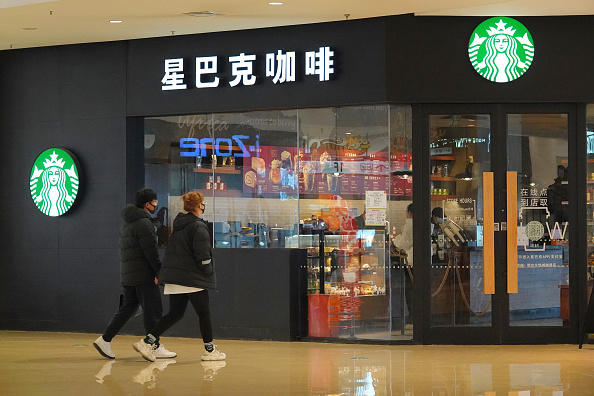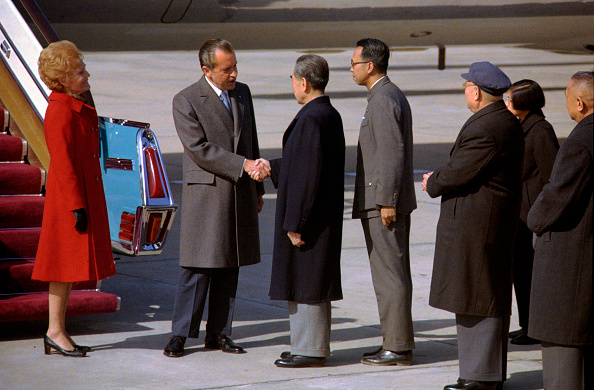
 Strategic Disengagement
Strategic DisengagementThrough its new official Indo-Pacific Strategy, the United States has committed more diplomatic and security resources to the Indo-Pacific. The strategy cites the "mounting challenges" posed by the rise of China as a key driver of the "intensifying American focus" on the Indo-Pacific, and lays out America's long-term commitment to the region.
The U.S. will also launch an Indo-Pacific Economic Framework this year, with the intention of resuming engagement with the region. However, the U.S. appears to have no intention of bringing China into that cooperative circle. Thus, while the Biden administration develops a strategic framework for dealing with China, it is sending a signal of competitive rivalry rather than cooperation.
Chinese state media decried the "containment" strategy as "poison," saying that Washington is making an "attempt to escalate bloc confrontation in the region under the pretext of advancing a 'free and open Indo-Pacific,' though its efforts against the trend of peace and cooperation are destined for failure."
Meanwhile, Secretary of State Blinken met with his counterparts in the Quad, including from India, Australia, and Japan, and reinforced the message that the U.S. is committed to ensuring sustained engagement in the region, and will continue to promote U.S. values.
"Countries deserve to have the freedom to work together and associate with whom they choose," Mr. Blinken said.
Read more in, "Biden's Indo-Pacific Economic Vision," by Zhang Monan, a Senior Fellow, China Center for International Economic Exchanges.
 Business Frenzy
Business FrenzyInflation has been a problem for both Washington and Beijing recently, but this week Premier Li Keqiang expressed China's confidence in "tackling inflation," as data confirmed that both consumer and factory-gate price growth slowed last month.
Consumers in both nations are feeling the pinch, as everyday items spike in costs. This week, a 30-cent price increase for a cup of Starbucks coffee sparked an online uproar in China, as other chains including Luckin Coffee and Tim Hortons increased the prices of their beverages in China, citing higher operating costs.
The viral outrage followed closely on the heels of another Starbucks controversy, over a "misunderstanding" between staff and a police officer in Chongqing. Foreign businesses in China are facing rising nationalism, however voices in state media have tried to quell the criticism and encourage a level-playing field between local and foreign companies.
This is all set against the backdrop of the 2022 Winter Olympics, for which the government has spent billions of dollars in railway lines, highways and other infrastructure. Much of the effort has been geared at getting Chinese citizens to participate in traditionally Western winter sports that could increase consumer spending, particularly in the country's northeast region.
Meanwhile, as economic scrutiny of Chinese firms in the U.S. remains fraught, the first Chinese company in seven months debuted on a U.S. stock exchange this week. A successful IPO by Meihua International Medical Technologies could lay the groundwork for others, as a handful of firms with predominantly Chinese operations have applied for Wall Street IPOs recently, following regulatory crackdowns by both Beijing and the U.S. that effectively froze out mainland-based companies from U.S. markets.
 50 Years On
50 Years OnChina and the U.S. are preparing this month to mark the 50th anniversary of President Nixon's historic visit to China and the signing of the Shanghai Communique, also known as "the week that changed the world." Nixon arrived in Beijing on February 21, 1972, and was the first U.S. president to visit China after the nation's establishment of Communist-rule in 1949. The Shanghai Communique was the first joint document signed by both nations, utilizing what came to be known as "strategic ambiguity," that established principles for developing bilateral relations, such as the one-China policy. The communique was seen by many as restoring U.S. credibility on the world stage and paved the way for the establishment of formal relations between Beijing and Washington under President Jimmy Carter. Specific details have yet to be released, but Chinese foreign ministry spokesman Zhao Lijian said both China and the U.S. will host events to commemorate the trip that reflect on history and look ahead to the future.
Nixon's efforts to begin rapprochement also resulted in China and the U.S. engaging with soft power, including a half-century of "panda diplomacy" between the two nations. The animals, which are loaned to zoos in the U.S. or elsewhere from China, serve as goodwill ambassadors aimed at fostering better relationships between China and the people of other countries.
As the 50th anniversary of these events approaches, observers have also contrasted the current state of relations today between China, the U.S., and Russia, with that of China, the U.S. and the Soviet Union during the Cold War. Nixon's trip not only laid the groundwork for relations with the U.S., but it served as one of the "diplomatic masterstrokes" of the Cold War. While many foreign policy experts still reject the prospect of a full-blown security alliance between China and Russia, there are fears that Washington is driving them closer together, as opposed to the concessions made with China in relation to the Soviet Union in 1972.
Prepared by China-US Focus editorial teams in Hong Kong and New York, this weekly newsletter offers you snap shots of latest trends and developments emerging from China every week, while adding a dose of historical perspective.
- 2022-02-11 In the Thick of It
- 2022-02-04 Year of the Tiger
- 2022-01-28 Zero-Sum
- 2022-01-21 An Uncertain Future
- 2022-01-14 Digital Advances
- 2022-01-07 The Dawn of a New Political Year
- 2021-12-17 Clamp Down
- 2021-12-10 Debating Democracy
- 2021-12-03 Managing Competition
- 2021-11-19 Responsible World Leadership
- 2021-11-12 A Historic Transformation
- 2021-11-05 A Green Rivalry
- 2021-10-29 Dry Tinder
- 2021-10-22 A Diplomatic Burn
- 2021-10-15 Energy Crunch
- 2021-10-08 Stoking Tensions
- 2021-10-01 Great Power Coopetition
- 2021-09-24 Sign of Goodwill?